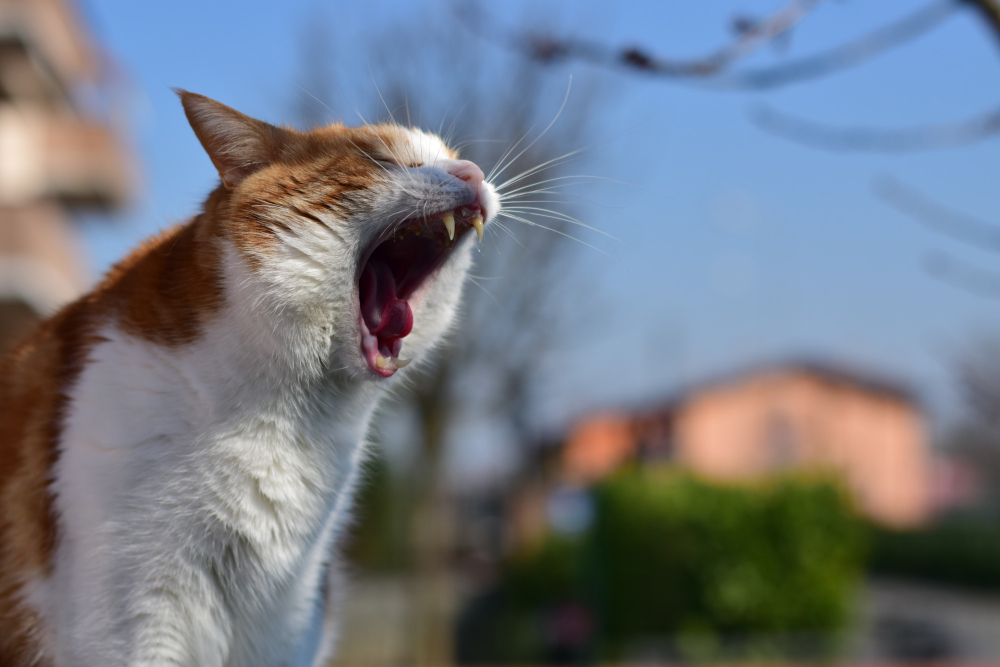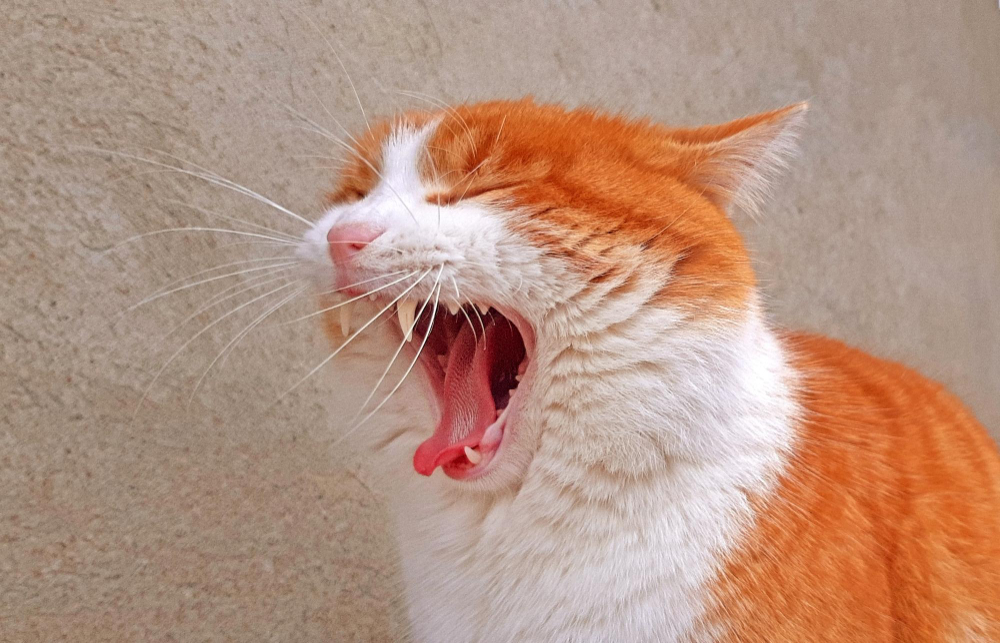Are you wondering why your cats are sneezing so much? It’s a common concern among cat owners, and there could be several reasons behind this excessive sneezing. In this article, we will explore the possible causes and concerns related to your cats excessive sneezing.
One of the common causes of excessive sneezing in cats is allergies. Just like humans, cats can be allergic to various substances such as pollen, dust mites, or certain foods. These allergens can irritate their nasal passages, leading to frequent sneezing. Another possible cause could be a respiratory infection, which can be caused by viruses or bacteria. In such cases, your cat may also exhibit other symptoms like coughing or runny nose.
It’s important to pay attention to the severity and duration of your cat’s sneezing. If the sneezing persists for more than a few days or if your cat shows signs of discomfort or illness, it’s advisable to seek veterinary care. A veterinarian will be able to diagnose the underlying cause and provide appropriate treatment. So, if you’re worried about your cat’s excessive sneezing, keep reading to learn more about the causes and concerns associated with it.

Why Is Your Cat Sneezing Nonstop?
Cats can sneeze for various reasons, and it’s important to understand the underlying cause to address the issue effectively. One common reason for excessive sneezing in cats is an upper respiratory infection, which can be caused by viruses or bacteria. Another possible cause is allergies, whether it be to pollen, dust mites, or certain foods. Additionally, foreign objects stuck in the nasal passage can trigger sneezing. It’s crucial to rule out more serious conditions such as nasal tumors or dental problems that may lead to sneezing. If your cat is sneezing nonstop, it’s best to consult with a veterinarian for a proper diagnosis and treatment plan. Early intervention can prevent further complications and provide relief for your furry friend.
How To Fix Your Cat’s Excessive Sneezing
Cats can sneeze excessively due to various reasons, but there are steps you can take to help alleviate their discomfort.
Identify the Cause
First, it’s important to determine the underlying cause of your cat’s excessive sneezing. Allergies, respiratory infections, or irritants like dust or smoke could be the culprits.
Consult a Veterinarian
If your cat’s sneezing persists or is accompanied by other symptoms like nasal discharge or difficulty breathing, it’s best to seek professional advice. A veterinarian can diagnose the issue and recommend appropriate treatment options.
Keep the Environment Clean
Regularly clean your cat’s living space, including bedding, toys, and litter boxes, to minimize potential irritants.
Reduce Exposure to Allergens
If allergies are the cause, try to identify and eliminate the allergens from your cat’s environment. This may involve changing their diet, using hypoallergenic products, or keeping them away from certain plants or substances.
Provide Proper Nutrition
A healthy diet can boost your cat’s immune system, helping them fight off infections and allergies. Consult with your veterinarian to ensure your cat is receiving the right nutrients.
By following these steps, you can address your cat’s excessive sneezing and help them breathe easier.
Common Reasons Why Cats Sneezes Excessively
Excessive sneezing in cats can be caused by a variety of factors. One common reason is a respiratory infection, such as a cold or flu. These infections can be caused by viruses or bacteria and can lead to symptoms like sneezing, coughing, and runny nose. Another possible cause is allergies. Cats can be allergic to various substances, including pollen, dust mites, and certain foods. Allergies can trigger sneezing episodes and may also cause other symptoms like itching and watery eyes. Additionally, a foreign object lodged in the nasal passages can lead to frequent sneezing. This could be anything from a blade of grass to a small toy. If your cat keeps sneezing, it’s important to monitor their behavior and look for any other signs of illness. If the sneezing persists or is accompanied by other concerning symptoms, it’s best to consult a veterinarian for further evaluation and treatment.
What Should I Do If My Cat Keeps Sneezing?
If your beloved feline friend is experiencing constant sneezing, it is crucial to take action and address this issue promptly. Firstly, observe your cat’s behavior and look for any other accompanying symptoms such as nasal discharge or coughing. These could indicate a more serious underlying condition that requires immediate veterinary attention.
Consult a Veterinarian for a Proper Diagnosis
Schedule an appointment with a veterinarian to get a proper diagnosis for your cat’s excessive sneezing. A trained professional will be able to determine the cause of the sneezing and recommend the appropriate treatment. It could be due to allergies, a respiratory infection, or even a foreign object lodged in the nasal passage.
Follow the Veterinarian’s Recommendations
Once you have received a diagnosis, it is vital to follow the veterinarian’s recommendations for treatment. This may include administering prescribed medication, making environmental changes, or providing supportive care at home. By following their advice, you can help alleviate your cat’s discomfort and ensure a speedy recovery.
Remember, your furry companion relies on you for their well-being, so taking prompt action is essential when it comes to their health.
Why Is Your Cat Sneezing So Much?
One possible reason for your cat’s excessive sneezing could be an upper respiratory infection. This is a common condition in cats and is often caused by viruses or bacteria. Another potential cause could be allergies. Just like humans, cats can be allergic to certain substances such as pollen, dust, or certain foods. It’s also possible that your cat may have inhaled something irritating, such as smoke or strong chemicals, which is causing them to sneeze. If your cat is sneezing along with other symptoms like coughing or nasal discharge, it could be a sign of a more serious underlying condition, such as feline asthma or a nasal tumor. In these cases, it’s important to seek veterinary attention as soon as possible to determine the cause and provide appropriate treatment.
How To Address Excessive Sneezing in Cats
Excessive sneezing in cats can be a cause for concern, but there are steps you can take to address this issue. Firstly, it is important to observe your cat’s behavior and look for any other accompanying symptoms. If your cat is also displaying signs of nasal discharge, coughing, or difficulty breathing, it is recommended to seek veterinary attention immediately.
If your cat’s sneezing is not accompanied by any other symptoms, there are a few things you can try at home. Firstly, make sure your cat is in a clean and dust-free environment. Regularly clean their litter box and bedding to minimize any potential irritants. Additionally, ensure that your cat is well-hydrated by providing fresh water at all times.
If the sneezing persists or worsens, it is advisable to consult a veterinarian for a thorough examination. They may recommend further diagnostic tests, such as blood work or imaging, to determine the underlying cause. Remember, addressing excessive sneezing in cats is important for their overall health and well-being.
What should I do about my cat’s constant sneezing?
If you notice that your cat is constantly sneezing, it is important to take action to address the issue. The first step is to observe your cat’s behavior and look for any other symptoms that may accompany the sneezing, such as discharge from the nose or eyes, coughing, or lethargy. If you notice any of these additional symptoms, it is best to consult a veterinarian for a proper diagnosis and treatment plan.
In the meantime, you can try some home remedies to provide relief for your cat. Keep your cat’s environment clean and free of any irritants, such as dust or strong odors. You can also try using a humidifier to add moisture to the air, which can help soothe your cat’s nasal passages. Additionally, make sure your cat is well-hydrated and offer them plenty of fresh water.
Remember, it is always best to consult a veterinarian for professional advice and guidance. They can help determine the underlying cause of your cat’s sneezing and provide appropriate treatment options.










